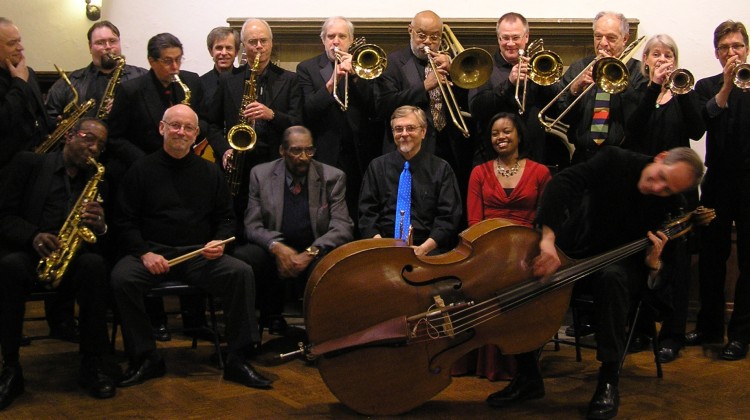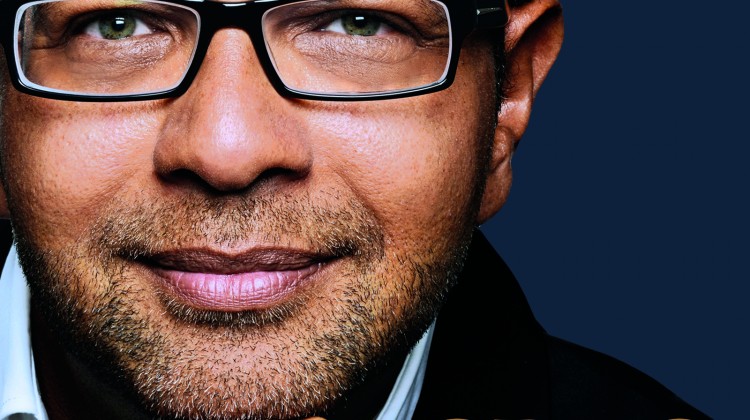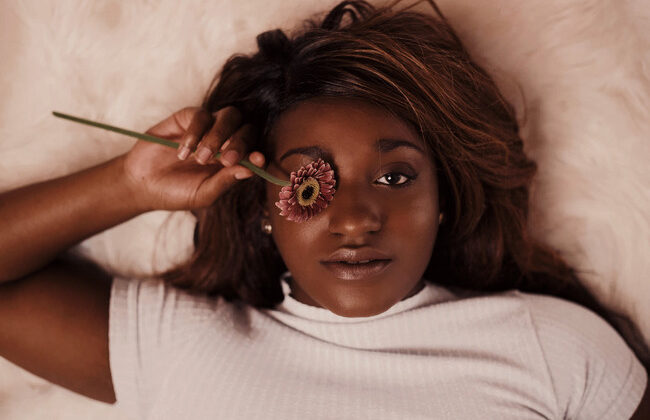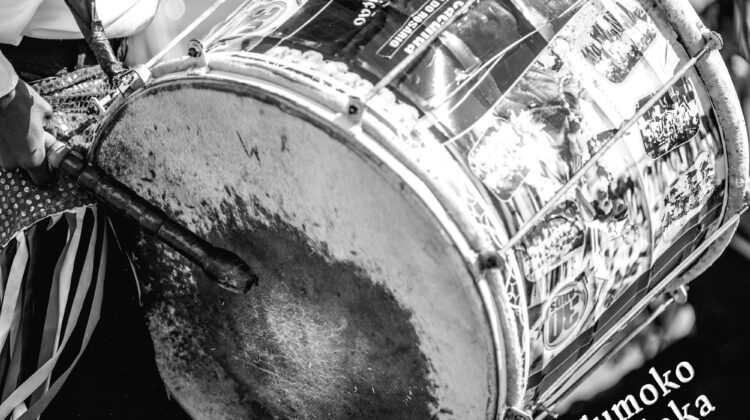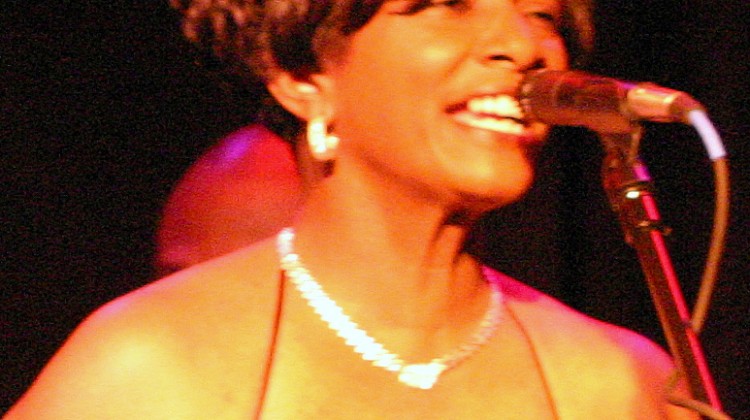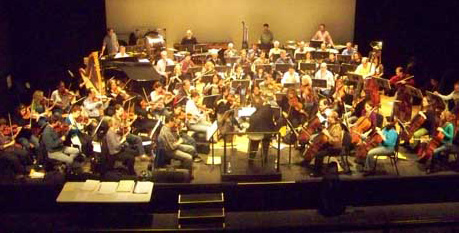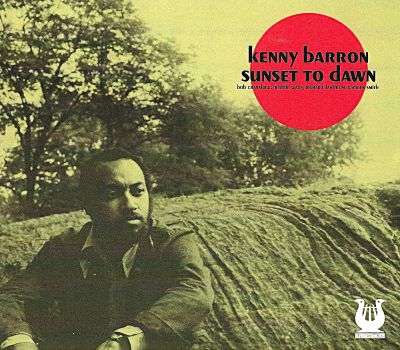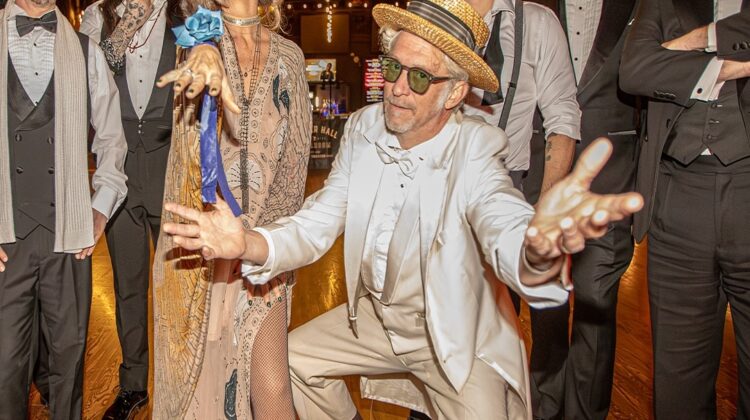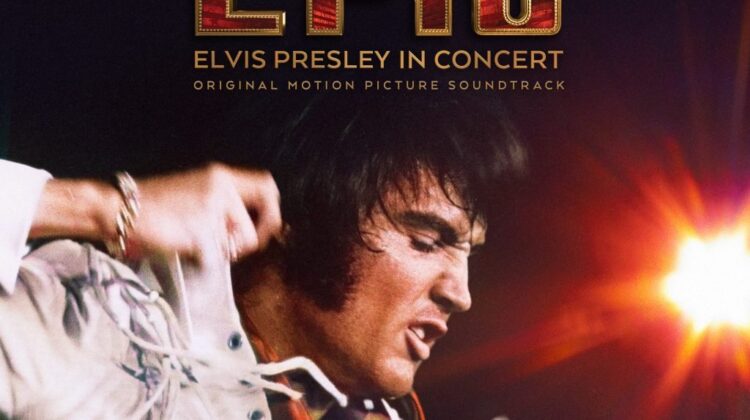New York, NY – American Composers Orchestra (ACO) and The Center for Jazz Studies at Columbia University (CJS), in cooperation with EarShot, the National Orchestra Composition Discovery Network, will present the second Jazz Composers Orchestra Institute (JCOI) Readings in 2013. Three orchestras – the Buffalo Philharmonic Orchestra (April 23 & 24), ACO (June 3 & 4), and La Jolla Symphony & Chorus (September 19 & 20) – will workshop, rehearse, and give public readings of new works for symphony orchestra written by seventeen jazz composers.
The ACO JCOI Readings will take place at Columbia University’s Miller Theatre, with mentor composers George Lewis (Columbia University), Anne LeBaron (California Institute of the Arts), and Paul Chihara (UCLA), conducted by Gil Rose. ACO’s featured participating composers are Jennifer Bellor, José Beviá, Courtney Bryan, Ingrid Laubrock, Andy Milne, Richard Sussman, and Sumi Tonooka. The Readings will include an open rehearsal on Monday, June 3 at 10am, and a run-through of the composers’ pieces on Tuesday, June 4 at 7:30pm. Both events are free and open to the public, but reservations are suggested.
The JCOI Readings are a national expansion of the prototype JCOI program held in New York City in 2010-2011. The new Readings are the culmination of a process that began in August 2012, when 37 composers were selected from a national pool of applicants to attend the weeklong JCOI Intensive, a series of workshops and seminars devoted to orchestral composition held at the UCLA Herb Alpert School of Music in Los Angeles. After completing the Intensive, seventeen composers were given the opportunity to put what they learned into practice by composing a new symphonic work for the JCOI Readings. The composers, working in jazz, improvised, and creative music, were chosen based on their excellent musicianship, originality, and potential for future growth in orchestral composition. Each of the three orchestras will workshop and perform between five and seven composers’ new works.
Each composer participating in the JCOI Readings receives coaching from mentor composers and a professional music engraver as they write their new pieces. Once completed, each piece will be workshopped, rehearsed, and performed by one of the three host orchestras through the EarShot program. The new works will be heard in rehearsal, open public readings, and a public performance. Composers receive travel and an honorarium, as well as feedback from orchestra principal musicians, conductors, librarians, and mentor composers, and an archival recording of their work.
JCOI is a new development in the jazz field. While many jazz composers seek to write for the symphony orchestra, opportunities for hands-on experience are few. JCOI aims to provide new resources for both jazz and classical music, promoting the emergence of composers trained in both jazz and new orchestral techniques. The first JCOI, which took place in New York during the 2010-2011 season, was the subject of two features on National Public Radio, which reported that what the composers discovered while at the Institute has “the potential to shift the course of concert music.” Listen online at: www.npr.org/2010/12/19/132146455/teaching-the-symphony-to-swing
2013 JCOI ACO Readings Composers & Their Works
Jennifer Bellor: Crystal Skies
For more information and audio: www.jenniferbellor.com
Jennifer Bellor is a Ph.D student in music composition at the Eastman School of Music. She received a Master of Music at Syracuse University, and a Bachelor of Arts at Cornell University. Her principal teachers were David Liptak, Robert Morris, Andrew Waggoner, Sally Lamb, and Steven Stucky. She also studied with visiting composers in residence at Eastman such as Shulamit Ran and Yehudi Wyner, and with Sydney Hodkinson at the Aspen Music Festival as a Susan and Ford Schumann composition fellow. Bellor’s music has been presented by performing artists and ensembles including Cuong Vu Trio, Eastman New Jazz Ensemble, Chamber Percussion Ensemble, and Wind Ensemble, University of Massachusetts Wind Ensemble, and Volta Trio. Recent composition prizes include Howard Hanson Orchestra prize in 2012, the Belle S. Gitelman Award in 2011 and the Bernard Rogers Memorial Prize in 2008 and 2009. She is currently on the faculty at Nazareth College teaching composition, orchestration, and undergraduate music theory.
Of her new piece for the JCOI Readings, Bellor says, “I wanted to write something that, for me, reflected my experience falling into the sky in the chilly November weather. The string textures reflect the ice sky, with the artificial harmonics and ornamented lines that weave out of each other. The woodwinds represent birds gliding in the sky and that moment when I felt like a bird slowly gliding down to the ground. I want to try and keep the same atmosphere throughout the piece but contrast the texture, harmonies, and with the use of the drum set, also create more of a groove in some places to contrast with the busy impressionistic-like texture at the beginning.”
José Beviá: Noit-Alimissa
For more information and audio: www.beviamusic.com
José Beviá graduated from the Valencia Conservatory of Music, Berklee College of Music, and Florida State University where he earned a Doctor of Music Degree in Music Theory and Composition. Beviá has studied composition with Ladislav Kubík and Mark Wingate, and jazz piano with Marcus Roberts and Bill Peterson. He has also participated in composition seminars with Pulitzer Prize winning composer Ellen Zwilich, jazz composer Bill Holman, and has been a member of the BMI Jazz Composers Workshop. Beviá has seen his classical, jazz compositions, and arrangements performed by the Moravian Philharmonic Orchestra, The Atlanta Symphony Orchestra, The BMI/ New York Jazz Orchestra, The Millennium Jazz Orchestra, Wynton Marsalis and the Jazz At Lincoln Center Orchestra, the Marcus Roberts trio, and the Count Basie Orchestra. His works have been commissioned by The Commission Project, The BMI Foundation Charlie Parker Composition Prize, Harpist Arielle, Ferdiko Piano Duo, and Israeli Harpsichordist Jochewed Schwartz.
José Beviá is the winner of the 2011 Lee Ettelson Composer’s Award in San Francisco, California, the 2010 International Music Prize for Excellence in Composition in Neapolis, Greece, the 2007 BMI Foundation Charlie Parker Composition Prize in New York, and the 2006 University of West Florida Phillips Jazz Piano Competition; he was also finalist at the 2006 Brussels Jazz Orchestra International Composition Contest, the 2009 Artez International Composition Contest in The Netherlands, and Honorable Mention at the Minnesota Orchestra Composer Institute. Mr. Bevia is currently Professor of Music at County College of Morris in Randolph, New Jersey.
Beviá’s new piece, Noit-Alimissa, is an effort to combine the influences of post WWII contemporary classical music with contemporary jazz, to create an organic musical entity.
Courtney Bryan: Shedding Skin
Courtney Bryan, a native of New Orleans, is a prolific and eclectic composer, pianist, and arranger. Her compositions range from solo works to large ensembles in the jazz and new music idioms, film scores, and collaborations for dancers, visual artists, writers, and actors. She performs around the New York area, and is the organist and director of the Institute of Sacred Music at Bethany Baptist Church of Newark, NJ. Bryan has academic degrees from Oberlin Conservatory, Rutgers University, and Columbia University. Recently, she was a Visiting Instructor at Oberlin. Currently, she is pursuing a DMA in music composition at Columbia University of New York. She has two self-released recordings, Quest for Freedom(2007) and This Little Light of Mine (2010).
Bryan has appeared at Harlem Stage as both composer and performer, New Orleans Jazz Festival, The Jazz Gallery and The Stone in New York City. She was featured recently as a speaker in the Institute for Research in African-American Studies (IRAAS) Conversation Series at Columbia University and in the Harlem Jazz Shrines Festival, and in the recent Columbia University Institute for Religion, Culture, and Public Life radio documentary, The Harlem Renaissance: Music, Religion, and the Politics of Race. Bryan was the featured composer and speaker at the Callaloo Conference 2012 in Princeton NJ, and recently traveled with Jazz at Lincoln Center’s Horns to Havana program as an instructor with the New Orleans Louis “Satchmo” Armstrong Jazz Camp to Havana, Cuba.
Courtney Bryan’s piece for the JCOI Readings, Shedding Skin for symphonic orchestra, was inspired by the poem of the same name by Harryette Mullen from her book Tree Tall Woman (1981). Shedding Skin deals with the concept of “notated improvisation.” Bryan explains, “Exploring this concept of notating improvisation, I used the symphonic orchestra as a sound world for which I notated music based on the concept of improvisation and the inspiration of the spirit.”
Ingrid Laubrock : Vogelfrei
For more information and audio: www.ingridlaubrock.com
Originally from Germany, Ingrid Laubrock lived in the UK from 1989 to 2009 and since then has resided in Brooklyn. She studied Jazz at the Guildhall School of Music and Drama (London), saxophone with Jean Toussaint and David Liebman and composition with pianist/composer Myra Melford. Laubrock has performed and recorded with Anthony Braxton, Dave Douglas, Kenny Wheeler, Jason Moran, Tim Berne, Mark Helias, Michael Formanek, Mary Halvorson, Tyshawn Sorey, Evan Parker, Steve Beresford, John Edwards,Veryan Weston, Luc Ex,Django Bates’ Human Chain, The Continuum Ensemble, and more.
As part of the F-ire Collective, she won the BBC Jazz Award for Innovation in 2004, was nominated for the BBC Jazz Award for “Rising Star” in 2005, and won a Fellowship in Jazz Composition by the Arts Foundation in 2006. She won the 2009 SWR German Radio Jazz Prize and was one of the final nominees for the 2009 Westfalen Jazz Preis. In 2011 Laubrock was commissioned to compose and record for the prestigious New-Jazz Meeting, an annual production by the SWR. Her current groups are Anti-House, Sleepthief, Ingrid Laubrock Orchestra and the collaboration Paradoxical Frog with pianist Kris Davis and drummer Tyshawn Sorey.
Of her work for the ACO JCOI Readings, Laubrock says, “The original inspiration for my piece, Vogelfrei, were photos I took of the various shapes and patterns formed by overground train electrical wires. In 2012, I spent several months in Moers, Germany as an artist in residence. Moers is a town on the edge of the Ruhr valley, an old industrial and coal mining region which has an extensive rail network. I love the seemingly endless combinations of the electrical wires and connectors suspended in the air which are interrupted by pylons and masts, and I tried to somewhat capture this texture in my composition. I grew up in Germany and my piece also tries to mirror the feelings of both unrest and yet deep familiarity I was experiencing while being in Germany again after not having lived there for 23 years.”
Andy Milne: Element of Surprise
For more information and audio: www.andymilne.com
Andy Milne is a jazz pianist and composer now based in New York. Milne was born in Hamilton, Ontario, Canada and partially raised in Kincardine and Toronto. One of 10 siblings, Milne studied music at York University where he was a student of Oscar Peterson. His musical influences include Thelonious Monk, Art Tatum, Herbie Nichols, Bela Bartok, Joni Mitchell and Stevie Wonder. In 1990, Milne graduated with an Honours degree and received a grant from the Canada Council to study at the Banff Centre for the Fine Arts. There he met saxophonist Steve Coleman, and subsequently joined Coleman’s core band Five Elements. Andy Milne formed his band Dapp Theory in 1998, and has also toured and recorded with Ravi Coltrane, Grégoire Maret, Sean Rickman and Ralph Alessi.
Milne says, “For the past few years, I have been refining my vision for creating a large ensemble suite, using concepts from classical homeopathic healing as a framework for establishing a relationship between improvisation and composed elements. Although my piece doesn’t include any solo improvisations, I do intend to explore textures from the perspective of what could provide a complimentary accompaniment to an improvised solo.”
Richard Sussman: Convergence
For more information and audio: www.richardsussmanjazz.com
Richard Sussman is a pianist, composer, music technologist, and professor of jazz composition at Manhattan School of Music in New York. His varied career has included performances and/or recordings with Lionel Hampton, Buddy Rich, Steve Slagle, Randy Brecker, Lee Konitz, Blood Sweat & Tears, David Sanborn, Houston Person, and Donna Summer, among many others. His jazz discography includes four albums of original music as a leader. Writing credits include a commission by the Manhattan School of Music and two NEA grants in composition for large-scale works for Jazz Band and Symphony Orchestra as well as arrangements for Lionel Hampton, Blood Sweat & Tears, Mel Lewis, Randy Brecker, the West Chester Jazz Orchestra, the Metropole Orchestra (Amsterdam), the WDR Jazz Big Band (Cologne, Germany), and others.
As an educator, Sussman has been an integral member of the Jazz Composition Faculty at the highly esteemed Manhattan School of Music since 1986. His responsibilities at MSM include private composition lessons, teaching and developing curriculum for jazz arranging classes, and managing all aspects of the Electronic Music Technology/MIDI Recording Studios for the Jazz Department. His extensive work in the field of film and television scoring has included projects for ABC, NBC, CBS, Nickelodeon, and Disney. Sussman received the prestigious ASCAP Jazz Commission for Established Composer in 2008.
Sussman says, “The underlying impetus behind Convergence comes from the incredible diversity of sounds and musical styles with which we are surrounded in the 21st century. The convergence of these diverse musical genres results in the breaking down of seemingly artificial stylistic barriers that tend to inhibit interdisciplinary compositional experimentation. Through this coalescence of disparate elements, Convergence seeks to bring a sense of the spontaneity, energy, and rhythmic drive of jazz improvisation and urban pop music to the orchestra.”
Sumi Tonooka: Full Circle
For more information and audio: www.sumitonooka.com
Sumi Tonooka has been called a “fierce and fascinating composer and pianist” (Jazz Times), “provocative and compelling” (New York Times), and “continually inventive, original, surprising, and a total delight,” (Cuadranos de Jazz, Madrid). Working in trio or quartet, Tonooka’s recordings characteristically blend her own compositions with highly personal readings of jazz standards. Her recent quartet recording, Initiation, garnered an Honorable Mention the 2010 Village Voice Jazz Critics’ Poll. Her most recent CD, Now, was released in February 2012 to international acclaim. A recent review from Lucid Culture proclaimed her work “unselfconsciously brilliant,” “an utterly original player,” and “grounded in the blues but with a flair for the unexpected and an ear for the avant-garde.”
In addition to her jazz recording and performing, Tonooka has composed for award-winning films. As a professional response to an inherent void within the music industry, Tonooka, along with alto saxophonist Chris Burnett and tenor saxophonist Erica Lindsay, co-founded the Artists Recording Collective(ARC), an internationally recognized brand and professional recording label. She now divides her time between her responsibilities as the Chief, Public Relations Officer for ARC, composing, teaching, and performing for an increasingly widespread audience of jazz aficionados who have discovered her wide-ranging talents.
Tonooka’s Full Circle was inspired by a dream she had after attending the JCOI Intensive in 2012, about orchestrating the curve in the yin and yang sign. She explains, “After laughing it off at first I started to wonder what would that sound like? Thinking about this led me to exploring the ideas in Full Circle. I want to create a six to eight minute work exploring circles. I want them to intersect, break, return and join together. The melodic material is circular in construct. The rhythm will have a feeling of unpredictability, surprise and flow as in jazz improvisation. In creating this piece, I want to deal musically with opposing and circular life dynamics, the sweet and the sour, the yin and the yang. It is my goal to create new music for the orchestral community that would reflect, fuse and explore my experience as a jazz pianist and composer in new ways.”
About EarShot
EarShot is the National Orchestral Composition Discovery Network that initiates partnerships with orchestras around the country; provides consulting, production, and administrative support for orchestras to undertake readings, residencies, performances, and composer-development programs; identifies promising orchestral composers, increasing awareness and access to their music; supports orchestras’ commitment to today’s composers and enhances national visibility for their new music programs. EarShot is coordinated by American Composers Orchestra in collaboration with American Composers Forum, the League of American Orchestras, and New Music USA (formerly the American Music Center and Meet The Composer). It brings together the artistic, administrative, marketing, and production resources and experience of the nation’s leading organizations devoted to the support of new American orchestral music. To date more than three dozen composers have been selected for New Music Readings with orchestras including the Buffalo Philharmonic Orchestra, Colorado Symphony Orchestra, Memphis Symphony Orchestra, Nashville Symphony Orchestra, Pioneer Valley Symphony (MA), New York Youth Symphony, and the San Diego Symphony.
About American Composers Orchestra
Now in its 36th year, American Composers Orchestra is the only orchestra in the world dedicated to the creation, performance, preservation, and promulgation of music by American composers. ACO makes the creation of new opportunities for American composers and new American orchestral music its central purpose. Through concerts at Carnegie Hall and other venues, recordings, internet and radio broadcasts, educational programs, New Music Readings, and commissions, ACO identifies today’s brightest emerging composers, champions prominent established composers as well as those lesser-known, and increases regional, national, and international awareness of the infinite variety of American orchestral music, reflecting geographic, stylistic, and temporal diversity. ACO also serves as an incubator of ideas, research, and talent, as a catalyst for growth and change among orchestras, and as an advocate for American composers and their music. For more information, visit www.americancomposers.org.
About Columbia University’s Center for Jazz Studies
The Center for Jazz Studies at Columbia University sees jazz as a music without borders and ultimately without limits, a model for the integration of forward-thinking models of scholarly inquiry with innovative teaching and community dialogue. Its direction, which emphasizes the themes of internationalization, technology, and community, is realized by promoting research by innovative scholars in the arts, humanities, and sciences; encouraging excellence in the teaching of music and culture; and presenting public events that complement and extend the Center’s research and teaching. The Center for Jazz Studies views the interdisciplinary expansion of the intellectual conversation surrounding jazz, and especially its lifeblood practice, improvisation, as tracing a path toward the development of new knowledge that illuminates the human condition. For more information, visithttp://jazz.columbia.edu.
# # #
The Jazz Composers Orchestra Institute is made possible by the Doris Duke Charitable Foundation’s Continuing Innovation Program, with additional funding provided by The Andrew W. Mellon Foundation, the Fromm Music Foundation and The Aaron Copland Fund for Music, and with public funds from the National Endowment for the Arts. Public funds from New York City’s Department of Cultural Affairs support the JCOI Readings in New York City, and the Herb Alpert Foundation generously funded the JCOI Intensive in 2012.
This press release is available online at: www.americancomposers.org/press
american composers orchestra
Robert Beaser, Artistic Director | George Manahan, Music Director
Derek Bermel, Creative Advisor | Dennis Russell Davies, Conductor Laureate
Steven Sloane, Principal Guest Conductor
240 West 35th Street, Suite 405
New York, NY 10001-2506
Phone: 212.977.8495 | Fax: 212.977.8995 | Web: www.americancomposers.org


